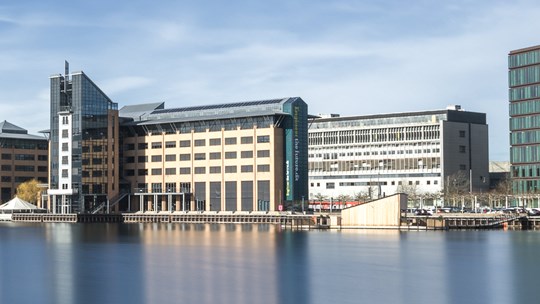Has your union representative made a difference for you and your colleagues? Then you can say thank you by nominating them for the Union Representative of the Year award.
News
6 principles for the working life of the future

The corona crisis has turned some of our preconceptions of how we structure our working life upside down.
A force majeure was necessary to teach us that knowledge workers are not most effective when cramped in an open office space between 8-16.
And extra working hours have been gained because employees now spend less time commuting and at home in bed, since we now have fewer sick days.
But the perhaps must uplifting lesson we have learnt is that employees become more productive and their job satisfaction increases when they are given the trust and responsibility to schedule their own workday in the way that makes most sense to them.
We need to utilise what we have learnt to create value for the individual, for businesses, and for society in general.
At IDA, we have included as many perspectives as possible. We have carried out focus group interviews with our employee representatives and with HR Directors in several large companies. In addition, we have asked our members directly in a large-scale members’ survey with 2,270 respondents.
Based on these data, we formulated six principles for the working life of the future. Through these, we are taking a lead position in the debate of what a better and more productive working life could look like.
We must rethink pre-existing ideas and frameworks – also once the pandemic is under control again. But if we succeed, we could develop our working lives further in one year than we have done in the past fifty.
1. Employee involvement in decision-making adds value
A flexible working life converts commuting time and sickness absence to working hours and enjoyment of life
Hundreds of thousands of Danes commute to work via public transport or cars every day. A flexible working life with more working hours spent at home saves commuting hours which can either be converted to working hours or to free time. A flexible working life leads to fewer sick days and less stress, to the benefit of all parties.
2. Relations affect the financial results
Task management and leadership are inseparable from human relations
Human beings need to meet physically and talk with each other. This goes for both employees and management. It is through the physical interaction that we build relations and trust, and so this interaction works as “social glue” which increases both job satisfaction and results.
3. One size fits none
A workplace should have solutions tailored to need, not one solution for all
Workplaces typically consist of groups with widely different tasks. While some employees perform tasks requiring physical presence, whether at a factory, at a construction site, or in a classroom, others undertake administrative tasks less dependent on physical presence. A third group shifts between the two types. That is why agreements should be tailored to individual needs. We have to recognise that the demands of our private lives and those of our professional lives are best solved under a flexible framework where tasks are solved when it makes the most sense.
4. No place like home
The open-plan offices of the future are labs for collaborations, relations, and development. The home workplace is good for concentration.
Open-plane offices mean interruptions and make it difficult to stay focused. Instead, open-plane offices are good for relations, informal exchanges of knowledge, cross-cutting collaborations etc. That is why development should primarily take place at the office and concentration at home – although neither online idea generation nor concentration at the office should disappear entirely.
Using video meetings to coordinate tasks, share knowledge and similar purposes is experienced as relevant, time-saving and effective, while physical meetings are better suited for developing ideas, discussion and building relations.
5. Ground rules or chaos
Structuring a flexible working life is the responsibility of both employee and employer, but neither can be present at all times
We need clear guidelines for when someone is available – and when not. We all need time away from work to recuperate without feeling guilt. Only when we have clear rules can we optimise how we work to the advantage of everyone.
6. Alternative management
Leadership is the largest single factor for creating results. Also in the future.
The flexible working life requires that we develop the skills of managers, for example that all leaders are educated on distance management. There is also a need for developing staff management as employees in the future also need both professional leadership, social attention and recognition. The flexible working life also sets requirements for new staff competencies within, for instance, self-management and digital tools.